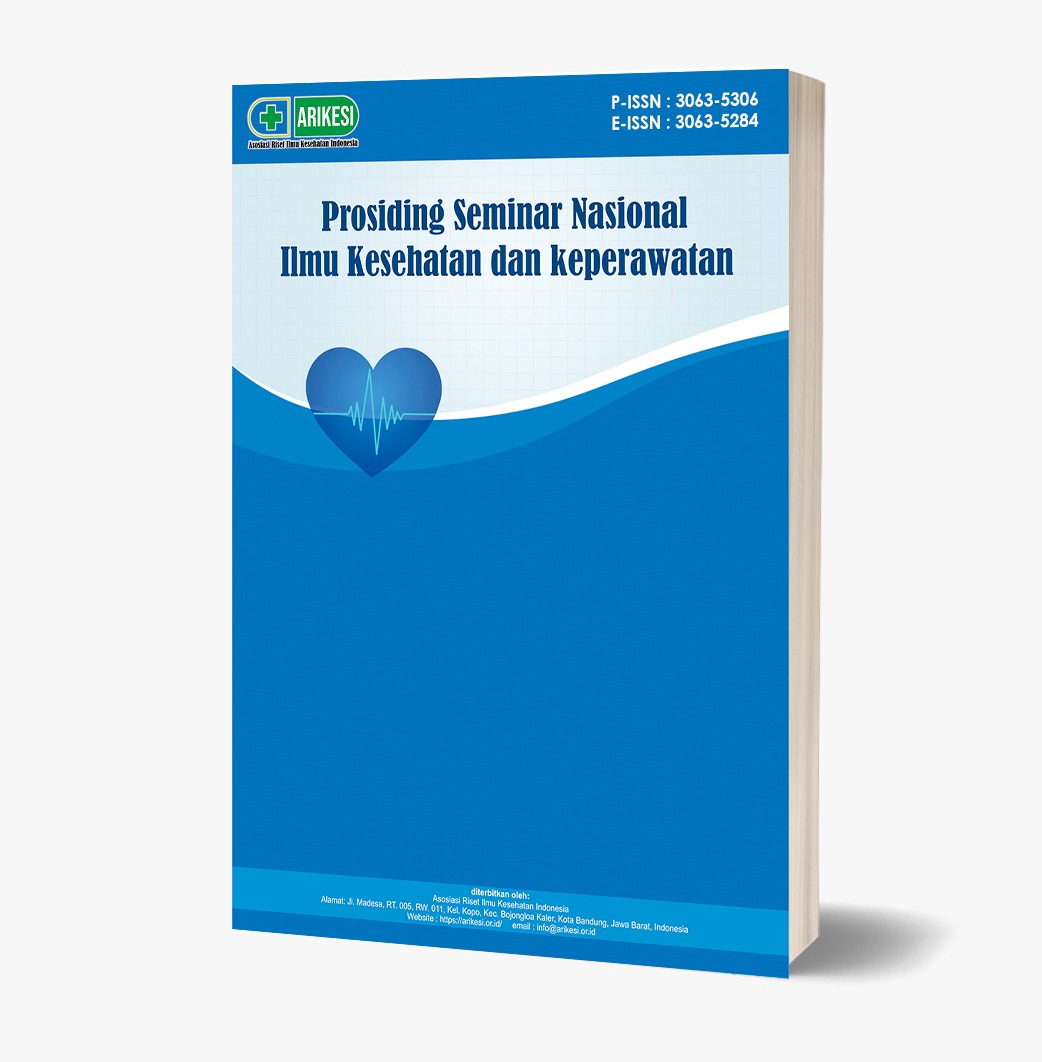Tanggung Jawab Hukum Bidan dalam Telekonsultasi Kebidanan dalam Perspektif Peraturan Per-Undang-Undangan dan Etika Profesi
DOI:
https://doi.org/10.61132/prosemnasikk.v2i1.58Keywords:
Legal Responsibility, Midwives, TeleconsultationAbstract
The development of digital technology in health services has encouraged the birth of new forms of services in the form of teleconsultation, including in midwifery practice. On the other hand, legal and ethical challenges have emerged to the implementation of these services by midwives, given the limitations of normative regulations that explicitly accommodate teleconsultation practices. This study aims to examine the legal responsibilities of midwives in the practice of midwifery teleconsultation, reviewed from the perspective of laws and regulations, namely Law No. 17 of 2023 concerning Health, Minister of Health Regulation No. 28 of 2017 concerning Licensing and Implementation of Midwife Practice, Minister of Health Regulation No. 24 of 2022 concerning Medical Records, Minister of Health Regulation No. 20 of 2019 concerning the Implementation of Telemedicine between Health Service Facilities, and the Midwifery Professional Code of Ethics. The method used in this study is normative juridical with a statutory approach and professional ethics. The results of the discussion show that legally, the practice of teleconsultation in general has been regulated in Law No. 17 of 2023, but specifically for the midwife profession it is still in a gray area because it has not been explicitly accommodated in Permenkes No. 28 of 2017, and is explicitly limited in Permenkes No. 20 of 2019 only for between health service facilities. On the other hand, legal responsibility remains with midwives for actions taken online, including the obligation to document through electronic medical records (Permenkes No. 24 of 2022), the principle of informed consent, and protection of patient data. From an ethical perspective, midwives are required to uphold the principles of professionalism, nonmaleficence, and protection of patient rights. In conclusion, a policy reformulation is needed that explicitly regulates the limits and procedures for teleconsultation by midwives to ensure legal certainty and ethics of digital-based midwifery services.
Downloads
References
Afiful Jauhani, M., Wahyu Pratiwi, Y., & Supianto, S. (2022). Perlindungan Hukum Tenaga Medis dan Pasien Pada Tindakan Gawat Darurat. Jurnal Rechtens, 11(2), 257–278. https://doi.org/10.56013/rechtens.v11i2.1790
Agustina, R. S., Dwisvimiar, I., Hukum, F., Sultan, U., & Tirtayasa, A. (2023). TANGGUNGJAWAB HUKUM DOKTER DALAM PENERAPAN PELAYANAN KESEHATAN BERBASIS TELEMEDISIN BERDASARKAN UNDANG-UNDANG NOMOR 17 TAHUN 2023 TENTANG KESEHATAN (STUDI DI UPT PUSKESMAS BINUANG KABUPATEN SERANG). Journal of Innovation Research and Knowledge, 4(11), 8273–8290. https://bajangjournal.com/index.php/JIRK/article/view/10046
Budiyanti, R. T., Suryoputro, A., Herlambang, P. M., Masyarakat, F. K., Diponegoro, U., Kesehatan, D., Temanggung, K., Kedokteran, F., & Hasyim, U. W. (2022). Studi Komparasi Regulasi Telekonsultasi. JURNAL CREPIDO, 04(1), 1–11. https://doi.org/https://doi.org/10.14710/crepido.4.1.1-11
Dr. Muhaimin, SH., M. H. (2020). Metode Penelitian Hukum (Cetakan Pe). Mataram University Press.
Hamzah, I. F. (2024). Munculnya Telemedisin sebagai solusi untuk keterbatasan akses layanan kesehatan. Jurnal Ilmiah Ilmu Sosial Dan Pendidikan, 2(2), 125–131.
IBI. (2015). Etika Dan Kode Etik Bidan Indonesia. In Pengurus Pusat Ikatan Bidan Indonesia (Issue November). Ikatan Bidan Indonesia.
Jurnal Ilmiah Wahana Pendidikan. (2024). Penguraian Konsep Tanggung Jawab Dalam Filsafat Hukum: Dari Dimensi Individu Ke Masyarakat. 10(April), 570–574. https://doi.org/https://doi.org/10.5281/zenodo.11108929
Kemenkes RI. (2017). PERMENKES RI No 28 Tahun 2017 tentang Izin dan Penyelenggaraan Praktik Bidan.
Kemenkes RI. (2022). Permenkes No. 24 Tahun 2022 tentag Rekam Medis.
Khoironi, M. L. (2023). Politik Hukum Perlindungan Tenaga Medis. Jurnal Penelitian & Pengkajian Ilmiah Mahasiswa (JPPIM), 4(4), 85–92. https://jppim.wisnuwardhana.ac.id/index.php/jppim/article/view/216
Permenkes RI. (2019). Peraturan Kementerian Kesehatan nomor 20 Tahun 2019 tentang PENYELENGGARAAN PELAYANAN TELEMEDISIN ANTAR FASILITAS PELAYANAN KESEHATAN. Menteri Kesehatan Republik Indonesia Peraturan Menteri Kesehatan Republik Indonesia.
Retnaning Muji Lestari., S.ST., M. ., Bd. Rista Dian Anggraini., S.Tr. Keb., M. ., & Ica Maulina Rifkiyatul Islami., S.Tr. Keb., M. T. K. (2024). BUKU AJAR ETIKA DAN HUKUM KESEHATAN DALAM KEBIDANAN. PT Nuansa Fajar Cemerlang Jakarta.
Tiribelli, S., Monnot, A., Shah, S. F. H., Arora, A., Toong, P. J., & Kong, S. (2023). Ethics Principles for Artificial Intelligence–Based Telemedisin for Public Health. American Journal of Public Health, 113(5), 577–584. https://doi.org/10.2105/AJPH.2023.307225
Undang-Undang No. 1 Tahun 2024 tentang Perubahan Kedua atas Undang Undang No.11 Tahun 2008 tentang Informasi dan Transaksi Elektronik. (2024).
Undang Undang No. 17 Tahun 2023 tentang Kesehatan. (2023).
Downloads
Published
How to Cite
Issue
Section
License
Copyright (c) 2025 Prosiding Seminar Nasional Ilmu Kesehatan dan Keperawatan

This work is licensed under a Creative Commons Attribution-ShareAlike 4.0 International License.







